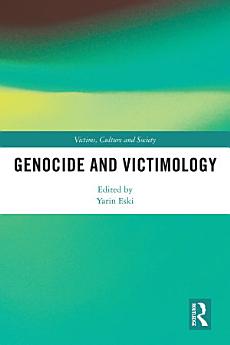Genocide and Victimology
Acerca de este libro electrónico
Bringing together theory with empirical research and drawing on a range of case studies, such as the Treblinka extermination camp, the Bosnian and Rwandan genocides, the Sagkeeng First Nation in Manitoba, Canada, and genocidal violence in Syria and Iraq, this book engages the victimological imagination towards an interdisciplinary, cosmopolitan victimology of genocide. Bundled and intertwined, the wide yet integrated variety of perspectives on genocide gives readers a victimological kaleidoscope to discover, and for victimology hitherto, unexplored theory and methodology. This way, readers can develop their own more epistemologically, theoretically, and methodologically robust victimology of genocide—a victimology of genocide as envisioned by Nicole Rafter. The book hopes to canvas an understanding and a starting point for a diverse appreciation of genocide victimhood and survivorship from which the real post-genocidal harms and sites, post-traumatic stress disorder, courts and tribunals, and overall meaningful justice will benefit.
Written in a clear and direct style, this book will appeal to students and scholars in criminology, sociology, cultural studies, philosophy, history, religious studies, English literature, and all those concerned with not repeating a history of genocide.
Acerca del autor
Yarin Eski is an assistant professor at the Knowledge Hub Security and Social Resilience of the Vrije Universiteit Amsterdam, teaching and doing research on (maritime) security, ethnography, sociocultural aspects of policing, biography, the arms trade, illegal drug trafficking, corruption, genocide, and existentialism.
All the royalties from this volume will be donated to the International Federation of Red Cross and Red Crescent Societies (IFRC).





